- Home
- H A CULLEY
TREASONS, STRATAGEMS AND SPOILS
TREASONS, STRATAGEMS AND SPOILS Read online
TREASONS, STRATEGEMS AND SPOILS
By
H A Culley
Book six about the Anglo-Saxon Kings of Northumbria
The man that hath no music in himself, nor is not moved with concord of sweet sounds, is fit for treasons, stratagems and spoils.
William Shakespeare
From the Merchant of Venice
Published by Orchard House Publishing
For Aliina and Henrik
First Kindle Edition 2017
Text copyright © 2017 H A Culley
The author asserts the moral right under the Copyright, Designs and Patents Act 1988 to be identified as the author of this work.
This novel is a work of fiction. The names, characters and events portrayed in it, while sticking as closely to the recorded history of the time and featuring a number of historical figures, are largely the product of the author’s imagination.
It is sold subject to the condition that it shall not by way of trade or otherwise be lent, resold, hired out or otherwise circulated without the author or the publisher’s prior consent, electronically or in any form of binding or cover other than the form in which it is published and without this condition being imposed on any subsequent purchaser or owner.
Replication or distribution of any part is strictly prohibited without the written permission of the copyright holder.
All Rights Reserved.
Cover Image: Courtesy of Google Images
TABLE OF CONTENTS
List of Principal Characters
Place Names
Glossary
Prologue
Chapter One – The Killing of Cousin Eardwine
Chapter Two – Two Invasions and an Execution
Chapter Three – Strathclyde
Chapter Four – The Battle of Newanberig
Chapter Five – Aftermath
Chapter Six – Regicide
Chapter Seven - Æthelwold Moll
Chapter Eight – The Court of Charlemagne
Chapter Nine – Frisia
Chapter Ten – Saxony
Chapter Eleven – The Regent
Chapter Twelve – A Kingdom Divided
Chapter Thirteen – The Restoration of King Æthelred
Chapter Fourteen – The Coming of the Vikings
Chapter Fifteen – The Year of Three Kings
AUTHORS NOTE
Other Novels by H A Culley
About The Author
List of Kings and Principal Characters
Historical characters are shown in bold type
KINGS OF NORTHUMBRIA
Ceolwulf – 728 to 737. Deposed briefly and restored in 731. Abdicated to become a monk at Lindisfarne. Died 764, later canonised
Eadbehrt – 737 to 758. Abdicated to become a monk. Died 768
Oswulf – 758 to 759. Son of Eadbehrt. Murdered
Æthelwold Moll – 759 to 765. Origin disputed. In this series of novels he is portrayed as the bastard son of King Osred I
Alchred – 765 to 774. Married to Osgifu, daughter of Eadbehrt and brother of Oswulf
Æthelred – 774 to 779. Son of Æthelwold Moll and his queen, Æthelfryth. He was eleven when he became king and was a puppet used by powerful nobles until he became sixteen. He was then deposed
Ælfwald – 779 to 788. Son of King Oswulf
Osred II – 788 to 789. Son of King Alchred. Deposed and exiled
Æthelred – 790 to 796. Restored. Murdered
Osbald – 796. Usurper. Reigned for 27 days before fleeing into exile
Eardwulf – 790 to 806. Deposed. Restored in 808. Married a daughter of the Emperor Charlemagne. The end of his reign is not recorded and may have been in 811 or 830
KINGS OF MERCIA
Æthelbald – 716 to 757
Beornred – 757. Usurper
Offa – 757 to 796. Nephew of Æthelbald
KINGS OF THE ISLE OF MAN
Heartbehrt – 716 to 740. Brother of Æthelbald of Mercia
Thringfrith – 740 to 755. Youngest brother of Æthelbald and Heartbehrt. Descended from King Penda of Mercia's brother, Eowa. Otherwise no historical records exist
KINGS OF THE PICTS
Óengus mac Fergus – 732 to 761
Bridei mac Fergus – 761 to 763. Óengus’ brother
Cináed mac Feradaig – 763 to 775. No known relationship to Bridei
Alpín mac Feradaig – 775 to 778. Brother of Cináed
Talorcan mac Óengus – 779 to 785. Son of Óengus mac Fergus
Conall mac Taidg – 785 to 807. No known relationship to previous Kings of the Picts
KINGS OF STRATHCLYDE
Eógan mac Muiredaig – 733 to 740?
(Conquered by Óengus mac Fergus in about 740, amongst the kings who ruled as vassals, subordinate to the Kings of the Picts was Rotri – 750 to 754)
Áed Find – 768 to 778
Fergus mac Echdach – 778 to 781
Donncoirce – 781 to 792
OTHER CHARACTERS
(In alphabetical order)
Acca – Bishop and Abbot of Hexham
Æthelwold – Bishop of Lindisfarne 721 to 740
Beorhtmund – Ealdorman of Dùn Barra
Bleddyn – A Welsh slave boy, servant to Seofon’s sons, who becomes his agent and assassin, later called Anarawd
Cerdic – Captain of Seofon’s warband
Cynwise – Octa’s wife
Cynewulf – Bishop of Lindisfarne 740 to 780
Eafa – Octa’s son
Octa – Seofon’s eldest son
Eafa – The son of Octa and Cynwise
Eanbald - Archbishop of Eoforwīc 780 to 796
Ecgbert – Archbishop of Eoforwīc 735 to 766, brother of King Eadbehrt and uncle of King Oswulf
Eochaid – Ealdorman of Alnwic, Ulfric’s cousin
Ethelbert – Archbishop of Eoforwīc from 767 to 780
Higbald – Bishop of Lindisfarne from 780 to 803
Hilda – Eoachaid’s daughter. Later married to Seofon
Renweard – Ulfric’s younger son, Seofon’s brother
Osoryd – Octa’s daughter
Otta – The late King Aldfrith of Northumbria’s middle son, actually named Offa but the name has been changed to save confusion with King Offa of Mercia
Seofon – Ulfric’s elder son
Seward – A Mercian slave. Seofon’s body servant
Sicga – The noble who murdered King Ælfwald. In the novel he is portrayed as the Ealdorman of Hexham
Torhtmund – The man who slew Sicga. In the novel he is Beorhtmund’s nephew and successor.
Ulfric – Ealdorman of Bebbanburg until 762. Great-grandson of the first Ealdorman of Bebbanburg
Uuffa – Seofon’s younger son
Uurad – Captain of Ulfric’s gesith
Place Names
(In alphabetical order)
I find that always using the correct place name for the particular period in time may be authentic, but it is annoying to have to continually search for the modern name if you want to know the whereabouts of the place in relation to other places in the story. However, using the ancient name adds to the authenticity of the tale. I have therefore compromised by using the modern name for places, geographical features and islands, except where the ancient name is relatively well known, at least to those interested in the period, or else is relatively similar to the modern name. The ancient names used are listed below:
Alba - Scotland
Bebbanburg – Bamburgh, Northumberland, North East England
Bernicia – The modern counties of Northumberland, Durham, Tyne & Wear and Cleveland in the North East of England. At times Lothian was a subsidiary part of Bernicia
&n
bsp; Berwic – Berwick upon Tweed, Northumberland
Caerlleon – Chester, Cheshire
Caer Luel – Carlisle, Cumbria
Cantwareburg – Canterbury, Kent
Dalriada – Much of Argyll and the Inner Hebrides
Deira – Most of North Yorkshire and northern Humberside
Dùn Breatainn - Literally Fortress of the Britons. Dumbarton, Scotland
Dùn Èideann - Edinburgh
Eoforwīc - York
Elmet – West Yorkshire
Frankia – The territories inhabited and ruled by the Franks, a confederation of West Germanic tribes, approximating to present day France and a large part of Germany
German Ocean – North Sea
Glaschu – Glasgow, Scotland
Loidis – Leeds, Yorkshire
Luncæster – Lancaster, Lancashire
Lundenwic – London
Mercia – Roughly the present day Midlands of England
Bernicia – The modern counties of Northumberland, Durham, Tyne & Wear and Cleveland in the North East of England and Lothian, now part of Scotland
Pictland – The confederation of kingdoms including Shetland, the Orkneys, the Outer Hebrides, Skye and the Scottish Highlands north of a line running roughly from Skye to the Firth of Forth
River Tamsye – River Thames, which flows though London
River Twaid – The river Tweed, which flows west from Berwick through northern Northumberland and the Scottish Borders
Strathclyde – South east Scotland
The Carolingian Empire of Charlemagne:
At the time of his accession to the throne:
Aquitaine – South-western France
Burgundy – South-eastern France and Switzerland
Frisia – Belgium and the Netherlands
Neustria – Northern France
Swabia – Part of Eastern France and Southern Germany around the upper Rhine and lower Danube
Conquests:
Lombardy (in Northern Italy) - 774
Thuringia (in Northern Germany) in 774
Saxony (in Northern Germany) – 777 – 97
Bavaria (in Southern Germany) – 788
Carinthia (in Austria) - 788
Glossary
Ætheling – Literally ‘throne-worthy. An Anglo-Saxon prince
Birlinn – A wooden ship similar to the later Scottish galleys. Usually with a single mast and square rigged sail, they could also be propelled by oars with one man to each oar
Brenin – The Brythonic term by which kings were addressed in Wales, Strathclyde and the Land of the Picts
Bretwalda - In Anglo-Saxon England, an overlord or paramount king accepted by other kings as their leader
Ceorl - Freemen who worked the land or else provided a service or trade such as metal working, carpentry, weaving etc. They ranked between thegns and slaves and provided the fyrd in time of war
Cyning – Old English for king and the term by which they were normally addressed
Gesith – The companions of a king, prince or noble, usually acting as his bodyguard
Hereræswa – Military commander or general. The man who commanded the army of a nation under the king
Knarr - A merchant ship where the hull was wider, deeper and shorter than that of a birlinn
Palliasse - A bag made of strong, stiff material such as canvas, linen or sackcloth. This is then filled with material such as straw, horsehair, wool or feathers to make a mattress
Seax – A bladed weapon somewhere in size between a dagger and a sword. Mainly used for close-quarter fighting where a sword would be too long and unwieldy
Thegn – The lowest rank of noble. A man who held a certain amount of land direct from the king or from a senior nobleman, ranking between an ordinary freeman and an ealdorman
Settlement – Any grouping of residential buildings, usually around the king’s or lord’s hall. In 7th century England the term city, town or village had not yet come into use
Weregeld – In Anglo-Saxon England, if property was stolen, or someone was injured or killed, the guilty person would have to pay weregeld as restitution to the victim's family or to the owner of the property
Witan – The council of an Anglo-Saxon kingdom. Its composition varied, depending on the matters to be debated. Usually it consisted of the ealdormen, the bishops and the abbots
Villein - A peasant who ranked above a bondsman or slave but who was legally tied to his vill
Vill - A thegn’s holding or similar area of land in Anglo-Saxon England which might otherwise be described as a parish or manor
Prologue
737 AD
Ceolwulf of Northumbria shifted his body uneasily as he sat on his throne in the king’s hall at Eoforwīc. He had never been comfortable as a ruler. He was well aware that even his closest friend, the Venerable Bede, had expressed some reservations about his suitability as king. Ceolwulf was a man with deep monastic interests and little suited to affairs of state. Bede had dedicated his History of the English Church to the king in 731. A year later Coelwulf was deposed for a short while and fled to Iona.
Bishop Acca of Hexham supported the usurper, a supposed descendent of one of the many sons of Ida of Bernicia, the first King of Bernicia. The usurper lost his head and Acca his diocese.
Coelwulf had been persuaded to return but now, five years later, he had called a meeting of the Witan – the council of senior churchmen and nobles – to inform them that he was going to abdicate and retire to the monastery on the Holy Island of Lindisfarne where he would spend the rest of his days as a monk. As he was only forty one his retirement was likely to be quite a long one.
He cast his eyes around the motley assortment of men as they chatted amongst themselves, waiting for the meeting to be begin. Some, mostly the younger ones, were dressed in bright colours and wore tunics and trousers tied around the calf with ribbons. Often the three colours chosen for these items of apparel clashed, making the young nobles stand out even more against the sombrely dressed older ealdormen and the clerics.
Both wore robes that reached the ground, the ealdormen in a variety of colours varying from crimson to dark blue, and the churchmen in black habits for the Benedictines and a dark cream for the rest. The bishops were only distinguishable from the abbots by the shepherd’s crook or the crosier they carried. All were tonsured, of course, and all wore a crucifix of some sort on their chests.
‘My lords, bishops and abbots,’ Coelwulf began is his slightly high-pitched voice. ‘Thank you for coming to this special meeting of the Witan. As there is only one item for us to discuss, I have decided to preside myself.’
There was a buzz of interest at this. Normally the bishop or ealdorman hosting the council would act as chairman. The king waited patiently for the hubbub to die down.
‘As you know I am not married and therefore I have no children; nor do I intend to marry.’
‘That doesn’t mean you can’t have children, Cyning. King Aldfrith was a bastard. For all you know you may have sired a few already,’ one of the younger nobles called out.
A pained expression crossed Ceolwulf’s face at this sally. He knew he had no children because he was still a virgin. When the laughter had died down he continued.
‘The succession will therefore have to be decided sooner or later and I have decided that it should be resolved now.’
A fresh tumult greeted this statement. This time one of those present decided that, if the king wasn’t going to bring the Witan to order, someone had to do it.
‘Silence, silence I say,’ Eochaid of Alnwic, the hereræswa, yelled above the noise. ‘Let the king speak.’
‘Thank you, Lord Eochaid.’
He smiled at the elderly commander of Northumbria’s army to convey his thanks. Eochaid had been an ealdorman for over forty years and had taken over as hereræswa when his friend Swefred, Ealdorman of Bebbanburg, had done what Coelwulf now proposed to do and retired to Lindisfarne. Eochaid hadn’t been called upon to d
isplay his military skills in all that time as the kingdom had been at peace, mainly thanks to Swefred’s efforts to defeat their northern neighbours, the Picts, decades earlier.
‘There is a need for urgency I fear as I have decided that I am a poor ruler but a devout Christian and I need to devote more time to the great love of my life – scholarship.’
Instead of the uproar he’d expected, his announcement was greeted by a stunned silence. Anglo-Saxon kings had abdicated and become monks before, but usually they were forced to do so as an alternative to being killed.
Then everyone started talking at once. Eochaid shouted to restore quiet again but this time he was ignored. He stalked out of the hall and came back with half a dozen members of his gesith. They banged their spears against their shields and this time the Witan slowly became silent.
‘You can protest all you like,’ Coelwulf said quietly, ‘but my mind is made up. Your task now is to choose my successor because tomorrow I will start the long journey north to Lindisfarne.’
With that Coelwulf got up and walked out of his hall for the last time.
Chapter One – The Killing of Cousin Eardwine
745 AD
I was born at a time when Northumbria’s golden age was coming to an end and chaos and strife were about to descend upon the kingdom. My father was Ulfric, Ealdorman of Bebbanburg. He ruled over the shire that surrounded the gaunt fortress standing on top of a tall outcrop of basalt rock on the coast of the German Ocean in what had been the Kingdom of Bernicia; an area which had been conquered by an Angle called Ida two centuries ago.
My parents named me Seofon because I was the seventh male child to be born to the House of Catinus. He was my great-great-grandfather and the first Ealdorman of Bebbanburg. I had a brother a year younger called Renweard, but no sisters. He and I were near enough in age that we thought of ourselves as twins and we were a lot closer than most brothers. Even when we were old enough to realise that I would inherit eventually and my brother would have to find his own way in the world, we didn’t allow that to come between us.

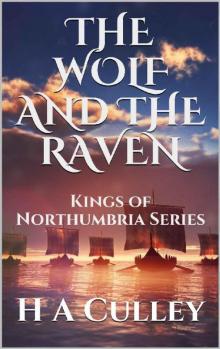 The Wolf and the Raven
The Wolf and the Raven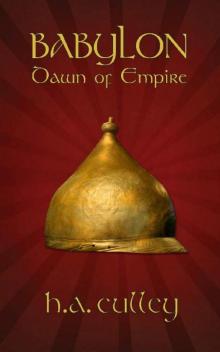 Dawn of Empire
Dawn of Empire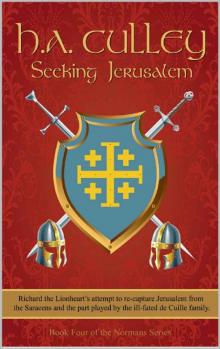 Seeking Jerusalem
Seeking Jerusalem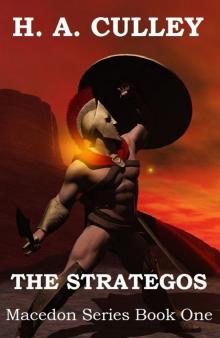 The Strategos
The Strategos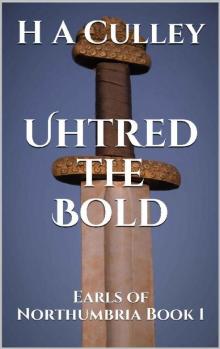 Uhtred the Bold
Uhtred the Bold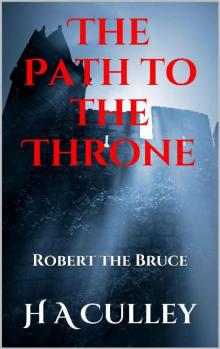 The Path to the Throne
The Path to the Throne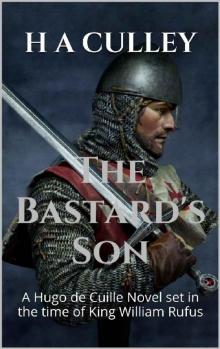 The Bastard's Son
The Bastard's Son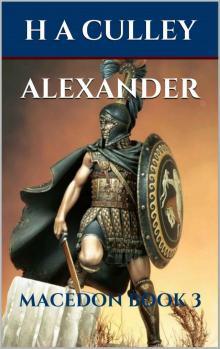 Alexander
Alexander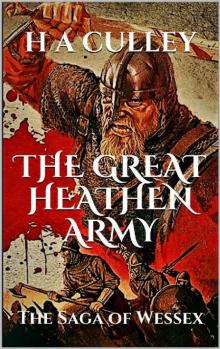 The Great Heathen Army
The Great Heathen Army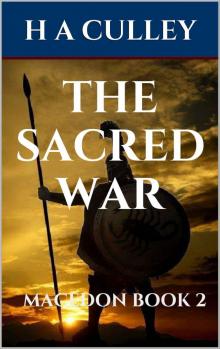 The Sacred War
The Sacred War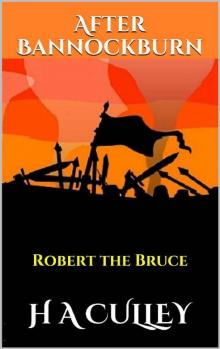 After Bannockburn
After Bannockburn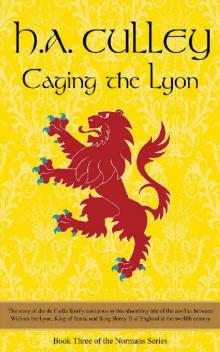 Caging the Lyon
Caging the Lyon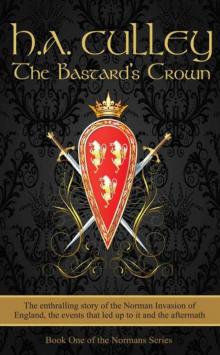 The Bastard's Crown
The Bastard's Crown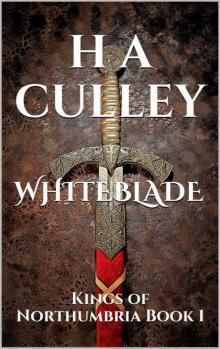 WHITEBLADE
WHITEBLADE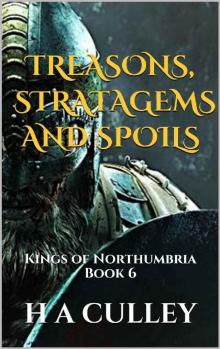 TREASONS, STRATAGEMS AND SPOILS: Kings of Northumbria Book 6
TREASONS, STRATAGEMS AND SPOILS: Kings of Northumbria Book 6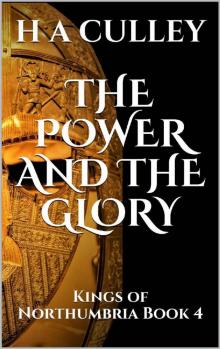 THE POWER AND THE GLORY: Kings of Northumbria Book 4
THE POWER AND THE GLORY: Kings of Northumbria Book 4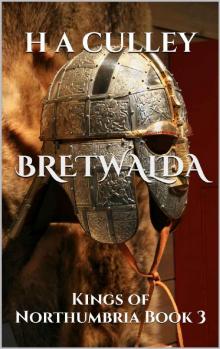 BRETWALDA: Kings of Northumbria Book 3
BRETWALDA: Kings of Northumbria Book 3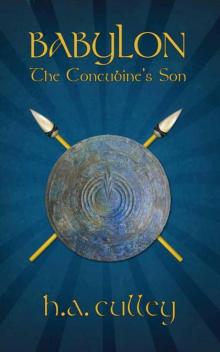 The Concubine's Son
The Concubine's Son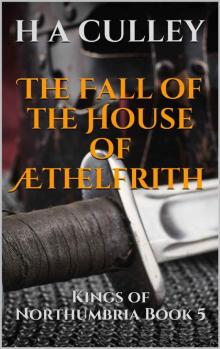 The Fall of the House of Æthelfrith: Kings of Northumbria Book 5
The Fall of the House of Æthelfrith: Kings of Northumbria Book 5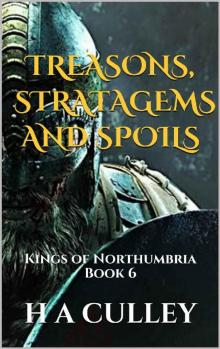 TREASONS, STRATAGEMS AND SPOILS
TREASONS, STRATAGEMS AND SPOILS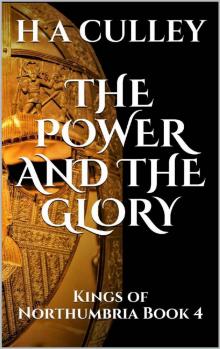 THE POWER AND THE GLORY
THE POWER AND THE GLORY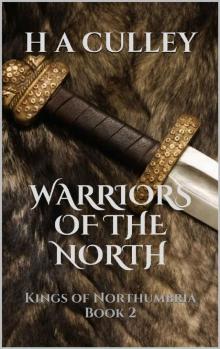 WARRIORS OF THE NORTH
WARRIORS OF THE NORTH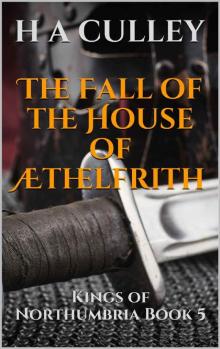 The Fall of the House of Æthelfrith
The Fall of the House of Æthelfrith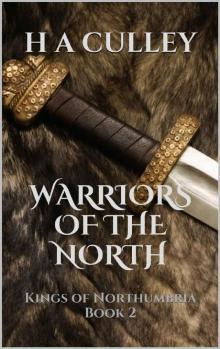 WARRIORS OF THE NORTH: Kings of Northumbria Book 2
WARRIORS OF THE NORTH: Kings of Northumbria Book 2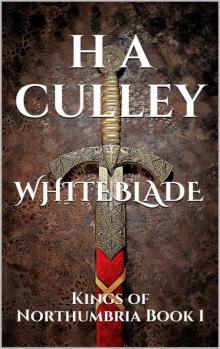 WHITEBLADE: Kings of Northumbria Book 1
WHITEBLADE: Kings of Northumbria Book 1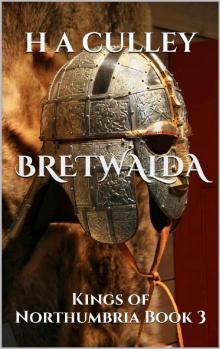 BRETWALDA
BRETWALDA